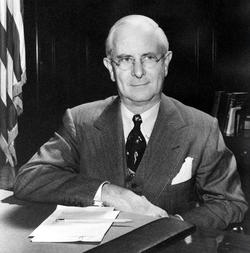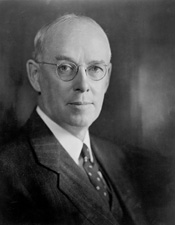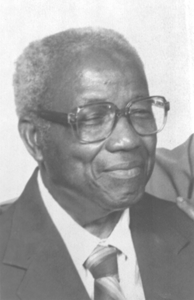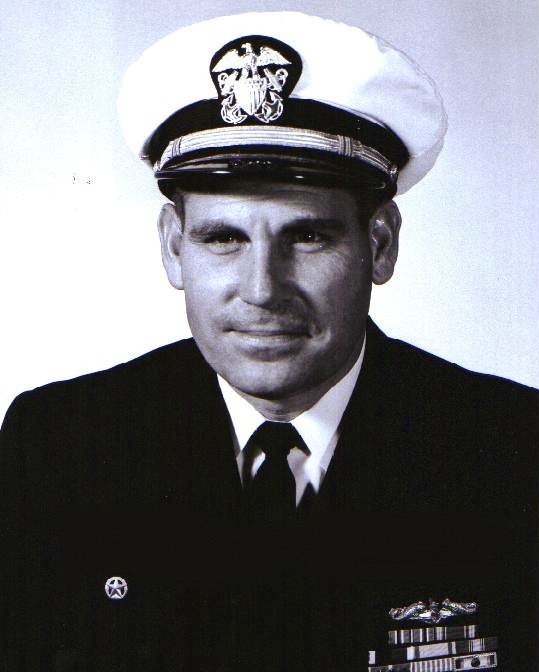Charles W. Sawyer
Charles W. Sawyer ( born February 10, 1887 in Cincinnati, Ohio, † April 7, 1979 in Palm Beach, Florida ) was an American politician of the Democratic Party, who belonged to the cabinet of U.S. President Harry S. Truman as Trade Minister.
After attending Oberlin College in 1911, he made his law degree from the University of Cincinnati. In his hometown Sawyer initially worked as a lawyer before he struck a political career, and from 1912 to 1916 sat on the city council of Cincinnati.
In the period between the world wars Charles Sawyer rose to a leader on within the Democratic Party from Ohio. The faction led by him fought in the 1930s with the followers of Martin Davey for supremacy within the party. Here, Sawyer had from 1933 to 1935 the office of Lieutenant Governor of Ohio under Governor Davey held; In 1938 he was nominated as the Democratic candidate for the election for governor, but he was defeated by Republican John W. Bricker.
1944 Sawyer was appointed by President Franklin D. Roosevelt to the U.S. ambassador to Belgium; the same time, he served as ambassador to Luxembourg. In 1945 he resigned from this office. Two years later he was appointed Roosevelt's successor, Harry S. Truman in the Civil Service Commission 's Review Board. Finally he joined in 1948 as a trade minister in the federal cabinet. He was awarded by President Truman in 1952 the order to take over the administrative control of the steel mills in the United States. This measure was considered necessary to prevent a steel strike, which would have affected the capacity of the United States in the Korean War.
After the end of Truman's term as president and Charles Sawyer resigned in January 1953 the government. He returned to Cincinnati, where he joined a law firm that had former U.S. Senator Robert A. Taft founded. Sawyer was the managing partner. In local politics he was going to continue active.










